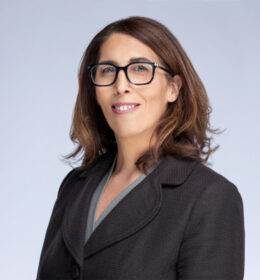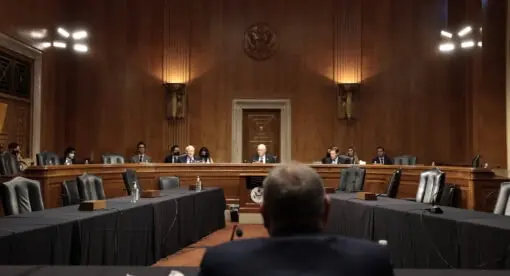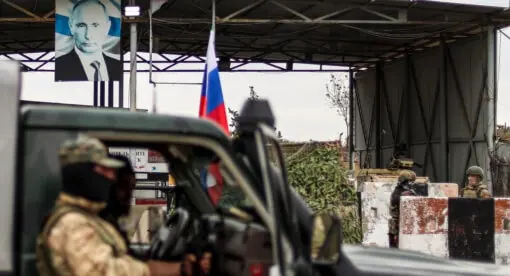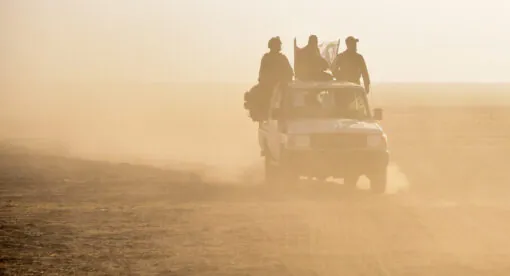The Lodestar, Episode 29
With no end in sight for the Syrian civil war, the country’s 6 million refugees and 6 million internally displaced peoples (IDPs) face an uncertain future. Those who have fled to other countries to escape the violence face deplorable conditions in refugee camps and years-long waits for resettlement, while IDPs live in constant fear of the ongoing hostilities in Syria. Compounding these issues is the COVID-19 pandemic, to which refugees and IDPs are all the more vulnerable given their lack of access to health services, as well as restricting travel. So what options do Syrian refugees have for relief? Dina Dajani, former Deputy Director of the Newlines Institute’s Displacement and Migration Program, speaks with Sahar Atrache, senior advocate for the Middle East at Refugees International, about the Syrian refugee crisis.
Atrache begins the conversation by relating the story of Reema, a Ph.D. student who fled Damascus with her three children and from there lived in Lebanon, Jordan, and eventually the United States. Reema applied for temporary protective status in 2016, but it still has not been approved, and her status is increasingly tenuous amid the Trump administration’s refugee policies.
Despite this, Reema is relatively lucky, Atrache says. Those scattered across the region in countries such as Lebanon, Turkey, and Greece are living in inhospitable conditions in refugee camps with little access to clean water, sanitation, or even adequate shelter. In Turkey, an economic downturn has turned people against refugees, who have faced attacks, assaults, lack of work, and deportation. The Turkish government also has used Syrian refugees in its political power struggles against the European Union.
These problems are exacerbated by countries that have begun to push back on accepting more refugees and push refugees to return to Syria, accompanied by a false narrative that the country has entered a period of relative stability. Atrache says that for many refugees, it is simply not possible to return home for fear of political oppression for their past dissent against the Syrian regime.
The situation is no better for IDPs, Atrache says, a significant number of whom are living in camps in Idlib province, the last stronghold of the opposition. Idlib has faced multiple offensives from the regime in the past year, which have displaced millions of people. The refugee camps are overcrowded and lack basic services, and the people living there feel trapped between the regime’s assaults on one side and the closed Turkish border on the other.
These issues have only been compounded by the COVID-19 pandemic, which has restricted travel between countries and threatened outbreaks at refugee camps. Atrache says there has not yet been a real COVID-19 outbreak in a refugee setting, but the consequences of one, if it happens, will be devastating because of the refugees’ lack of access to health services. These refugees already are feeling the economic impact of the pandemic, which is further restricting their access to already-scarce work.
For Syrian refugees in the United States, Atrache says a lot hinges on the upcoming presidential election. President Donald Trump and his challenger, former Vice President Joe Biden, have widely different views on Syrian refugees, with the Trump administration taking a hard line on accepting Syrians and other immigrants and Biden pledging to reverse the administration’s policies. If Trump wins re-election, the futures of Syrians in the United States such as Reema will become even more uncertain.
The views expressed in this podcast are those of the guests and not an official policy or position of the Newlines Institute.





